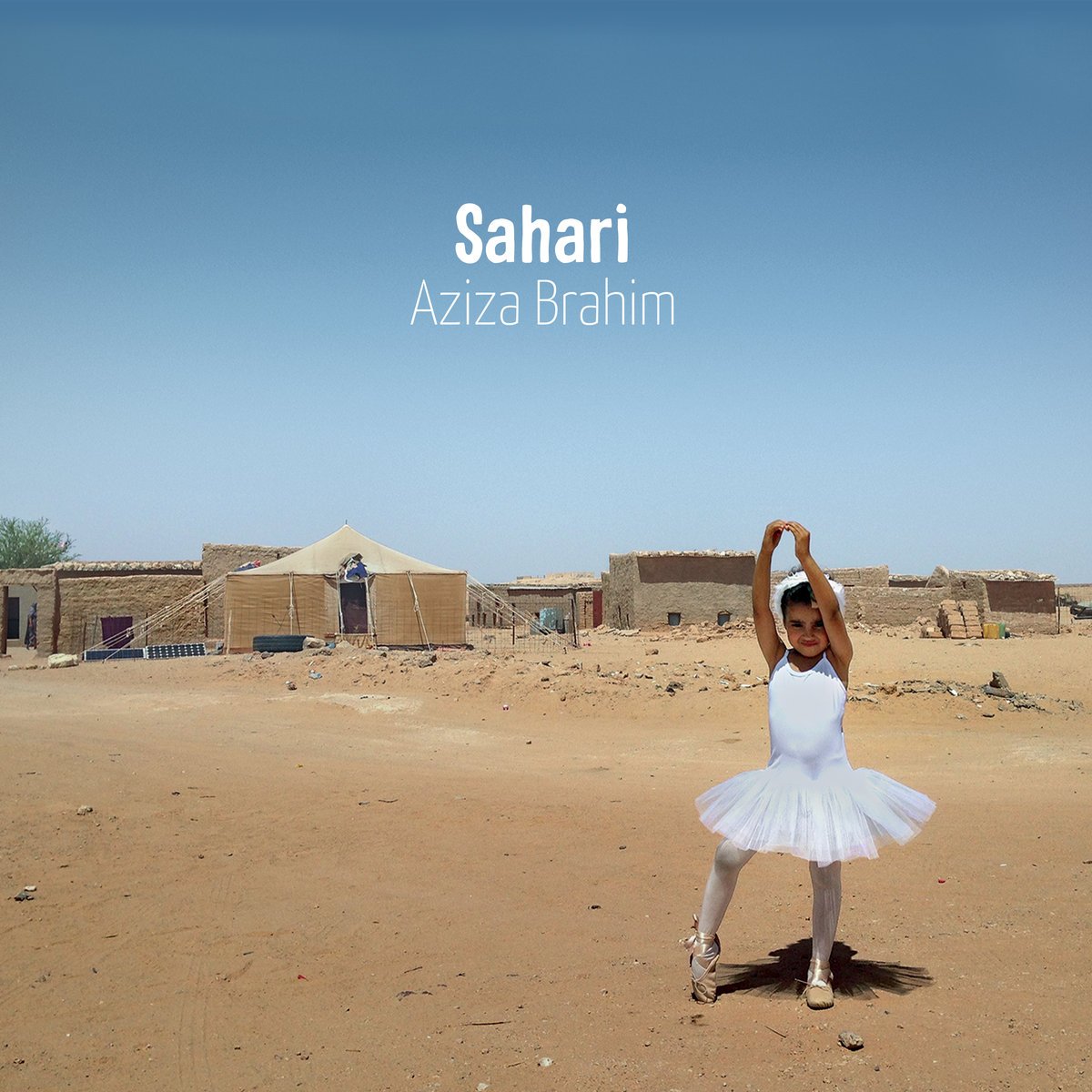Sahari is an exciting new step for Aziza Brahim featuring more electronic elements than her previous two Glitterbeat albums Soutak and Abbar El Hamada. The different soundscapes and instrument arrangements of each track give a coherent arc to the music and storytelling. Unlike her previous albums which were recorded as live takes, this album was recorded in different studios. She co-produced this album herself for the first time since her 2012 album Mabruk with her band Gulili Mankoo. This means each song sounds exactly as she wants it.
With Brahim focussing on the interplay of tabal drum, guitar and voice, artist and producer Amparo Sànchez (Amparanoia) took the reins of the electronic side. While the songs transition seamlessly and the foundations of each song have a natural movement to them, there are times when a little more production could make the songs groove a bit harder or lift them a bit higher. ‘Mujayam’, for example, has such a wonderfully expansive arrangement and deep-set rhythm section yet it only hints at where it could have ended up!
Title track ‘Sahari’ and single ‘Hada Jil’ really do reach that elated place, and they are tracks you want to play again as soon as they end. The electric guitar has a bit more bite than previous albums, and the guitar lines and vocals dance together, sometimes in unison, sometimes in turn and sometimes altogether freestyling.
Growing up in a musical family – her grandmother a poet, her mother in the first Saharawi National band – and living for long periods in Saharawi refugee camp, Cuba and Spain, these elements are all reflected throughout the album. This album is a message to refugees around the world and a call for others not to overlook their situation. The new sounds and approach to this album will give it a wider appeal, and it is a great platform to the lyrics of war and peace, homeland, love, childhood and the future.


